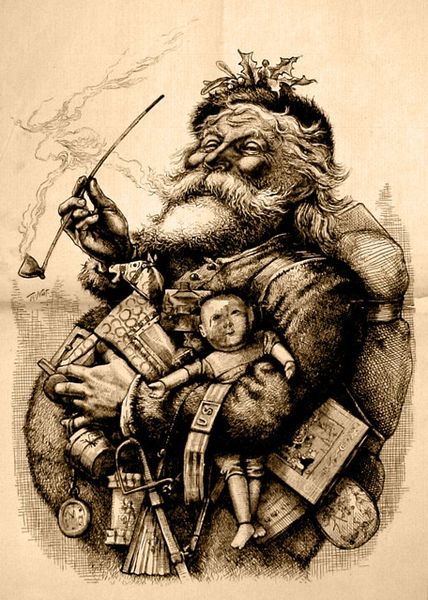 It is a popular thing to dislike Santa Claus. Consider, for example, the lyrics of Greg Lake’s song about Father Christmas:
It is a popular thing to dislike Santa Claus. Consider, for example, the lyrics of Greg Lake’s song about Father Christmas:
And I believed in father christmas
And I looked at the sky with excited eyes
’till I woke with a yawn in the first light of dawn
And I saw him and through his disguise
Similarly, Christians are often very negative about Santa Claus etc. on the grounds that they distract from the Christian core of Christmas. I think both responses fail because modern people don’t know how to read stories. Myths gesture toward truth; they are not literal, nor are they meant to displace the literal. I don’t mean to defend all Christmas mythology, as modern people don’t know very well how to tell stories, and there are some bad ones out there. However, the categorically cynical response does something akin to rejecting Christianity because workers (contra the parable) are typically paid different wages depending on how long they work — such a response misses the point of parable. For Christians, the reduction of everything to “plain speech” has made us forget genre —if there is any danger of people worshiping Santa rather than Christ (or alternately rejecting both as similarly fabricated), it is because of a failure on our part in knowing how to tell stories in different genres, not because we have failed to abolish all other stories except the most slavishly pedantic version of the Christian one.
For the next 23 days, I will be posting reflections on Christmas and Christmas culture as a way of counting down Advent. My posts will orbit about two themes: the primary reason for Christmas, the coming of Immanuel (God with us); and the odd and bizarre way that Christmas culture relates to this advent. These posts are informed by G.K. Chesterton’s analysis of Christmas and Dickens. See Chesterton on Christmas in my notes, from his biography of Dickens.
Next in the series: No Camping During Advent Please
